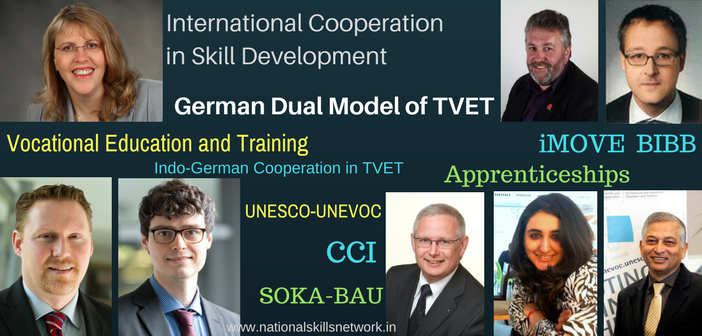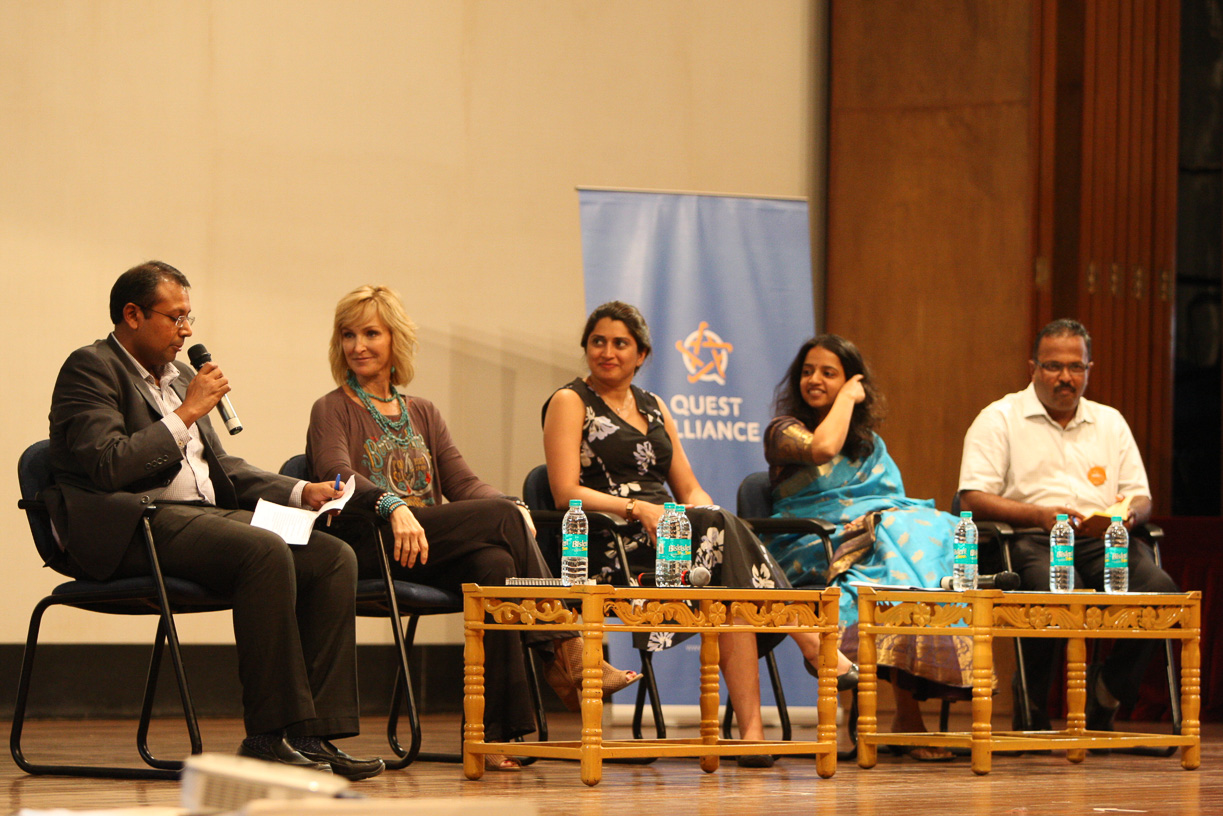It gives our team immense pleasure in publishing this international compendium of knowledge and expertise from German Vocational Education Training and skill development. Going by the key objective of National Skills Network – NSN, we capture and share the positive impact of skilling, this time with an Exclusive Edition of our biweekly newsletter “Skill Times from NSN” on German Dual Model of VET. The contributions to this edition are guest-edited by Pooja Gianchandani, German Chancellor Fellow at the Federal Institute for Vocational Education Research (BiBB). We are indeed privileged to present the VET experts from Germany, as a mark of commemoration of the recent visit of our Prime Minister Mr Narendra Modi to Germany and his discussion with the German leadership for collaboration in skill development initiatives in India.
The Hon’ble Prime Minister visited Germany on 30th May 2017 and among the many important themes discussed, Skills Development was a key agenda. With this visit the partnership took a new dimension and so at NSN, we wanted to initiate a conversation about the German Dual System but from a applicability perspective. The idea, suggested by Pooja, materialised in the form of an exclusive edition of our newsletter to start the conversation. We invited Pooja to be our Guest Editor. Each of the experts was identified and invited her, given their huge experience of international collaboration and deep understanding of the Skills systems.
With skill development as a top agenda for economic progress of the country, India has embarked on many initiatives at the national and state levels by partnering with the industry and training providers. The German Dual Model of VET, emulated by many countries in the world, has much to offer at the level of policy formulation, industry participation and support from grassroots level. And India is at the cusp of change in education and vocational training space, powered by the emerging industry demands, technology disruptions, global economic policies and the untapped demographic dividend.
Never before did we lay so much emphasis on the need for industry integrated curriculum, industry driven qualification framework (NSQF), apprenticeships and outcome-based learning. Now the awareness needs to be translated into action with right structural transitions and strategic transformations. We have a lot learn from international VET models. The German Dual Model encapsulates what it means for the industry to drive vocational education with right alignment with the academia and government.
 Adapting the German Dual Model for unique Indian requirements
Adapting the German Dual Model for unique Indian requirements
Any international model of VET cannot be directly ‘imported’ and placed in a native context to solve specific issues. We need to understand the relevance of the model, appreciate its advantages and adapt the same to meet our unique needs. Let’s understand and adapt the best practices and global benchmarks set by placing them in the broad context of Indian history, culture, socioeconomic, political factors. Our panel of contributors include from the German industry and academia, international organizations and industry body are here to guide us with their knowledge, research and observation besides the vast repertoire of industry experience.We are introduced to the big picture of the German Dual Model in the backdrop of UNESCO-UNEVOC giving a global perspective, the Chamber of Commerce and Industry, the role of trade union in vocational training and apprenticeships, the social support from service providers like SOKA-BAU and other facets of the German VET systems.
The Editorial article from Pooja What India can learn from the German mantra : Skills for Competitiveness provides an overview of all the contributions, with a personal introduction of her research experience in Germany. This is followed by the contributions from :
Dr Philipp Grollmann, Deputy Head of the Internationalisation / Monitoring of VET Systems at the BIBB: Models of dual vocational education: sources of mutual inspiration
Marcel Macherey and Dr Torg Middendorf, Associates of SOKA-BAU : How SOKA-BAU provides social security to German construction workers
Jürgen Hindenberg, Director for VET/Securing Skilled Personnel for (CCI): The Chamber of Commerce and Industry (CCI) : Guardian of the Holy Grail of the German Dual System of VET
Thomas Giesslar, Head of Vocational Education and Training Policy Unit at the Confederation of German Trade Unions (Deutscher Gewerkschaftsbund, DGB) Partnership in VET: Trade Union participation in the governance of the dual system in Germany
Silvia Niediek, Public Relations Officer, iMOVE: The German Dual System and its relevance in different economies
Prof. Shyamal Majumdar, Ph.D, Head of UNESCO-UNEVOC International Centre, Bonn, Germany: Role of UNESCO-UNEVOC Network in furthering the Skills and Development Agenda
Team NSN thanks Pooja for her dedicated time and effort in coordination to bring out this exclusive edition of Skill Times from NSN. We thank all the contributors for their articles and we welcome comments, queries and suggestions from our audience to embark on an ongoing interaction with the German experts.













